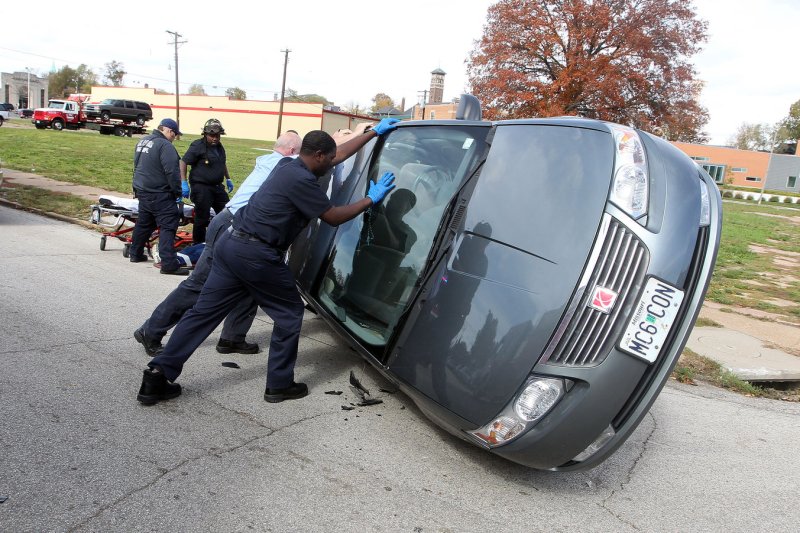The risk of a cardiovascular event increased for people ages 65 and older who were riding in vehicles that hit pedestrians. File Photo by Bill Greenblatt/UPI |
License Photo
May 23 (UPI) -- Older passengers may have a higher risk of heart failure or stroke following a car crash, new research shows.
The risk of a cardiovascular event increased for people age 65 and older who were riding in vehicles that hit pedestrians, compared to the risk for the pedestrians, according to a study published Tuesday in the American Journal of Epidemiology.
The study also suggests that older motorists may be at a heightened risk of heart failure and stroke due to chest injuries they suffer from hitting steering wheels or deployed airbags.
"Although the risk of heart failure and stroke is modest in older people, these findings are important with respect to an increasingly large aging population, which is on the road driving and who are also at risk of motor vehicle crashes," Bindu Kalesan, a researcher at Boston University and the corresponding author of the study, said in a news release.
The researchers looked at U.S. hospitalization data between 2013 and 2014 for older passengers who were in vehicles that hit pedestrians. They wanted to know the risk of those passengers being re-hospitalized for stroke or heart failure six months after the initial hospital visit.
"Now we found that a physical injury may lead to a chronic disease, which may require further treatment, suggesting a pathway from injury to chronic diseases," Kalesan said. "We have to know more about what happens to those who develop heart failure or stroke after being involved in a motor vehicle crash."
Older passengers had an elevated risk for heart failure between 30 and 180 days of follow-up compared to the pedestrians who were hit by vehicles. They also had a higher risk of stroke after a 180-day follow-up.
To be sure of the risk, the researchers analyzed Danish hospitalization data.
"If this relationship holds true, we may be able to prevent occurrences of heart failure and stroke by screening older patients involved in motor vehicle crashes, particularly among those without a history of cardiovascular diseases."















